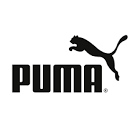Puma SE

Estimated electricity consumption
N/A
Countries of production presence
N/A
PUMA SE is a German multinational corporation that specializes in the design and production of athletic and casual footwear, apparel, and accessories. The company was founded in 1948 by Rudolf Dassler, the brother of Adidas founder Adi Dassler. PUMA SE is headquartered in Herzogenaurach, Germany, and has operations in over 120 countries worldwide.
PUMA SE is committed to sustainability and has set ambitious targets to reduce its environmental impact. One of the company's key priorities is decarbonisation, which involves reducing greenhouse gas emissions across its operations and supply chain. PUMA SE has set a target to become carbon neutral by 2050, and is taking a range of measures to achieve this goal.
One of the ways that PUMA SE is reducing its carbon footprint is through the use of renewable energy. The company has invested in a number of renewable energy projects, including wind and solar power, to reduce its reliance on fossil fuels. PUMA SE has also implemented energy efficiency measures across its operations, such as upgrading lighting systems and optimizing heating and cooling systems.
To further support its decarbonisation efforts, PUMA SE has also implemented a corporate power purchase agreement (PPA). A PPA is a long-term contract between a renewable energy producer and a corporate buyer, in which the buyer agrees to purchase a specified amount of renewable energy at a fixed price. PUMA SE has signed a PPA with a wind farm in Norway, which will provide the company with renewable energy to power its operations in Europe.
In addition to its renewable energy initiatives, PUMA SE is also focused on reducing its corporate energy consumption. The company has implemented a range of energy-saving measures across its operations, such as installing energy-efficient lighting and HVAC systems, and optimizing production processes to reduce energy use.
PUMA SE's commitment to sustainability extends beyond its operations and supply chain. The company is also focused on reducing waste and promoting circularity in its products. PUMA SE has launched a range of sustainable products, such as shoes made from recycled materials and apparel made from organic cotton. The company is also exploring new business models, such as rental and resale, to extend the life of its products and reduce waste.
Overall, PUMA SE is a leader in sustainable business practices, with a strong commitment to decarbonisation, renewable energy, and circularity. The company's efforts to reduce its environmental impact are not only good for the planet, but also for its bottom line, as it reduces costs and enhances its reputation with customers and investors. PUMA SE's sustainability initiatives demonstrate that it is possible for companies to be profitable while also being responsible corporate citizens.